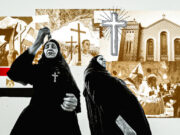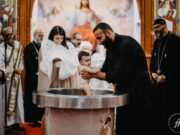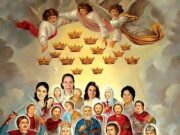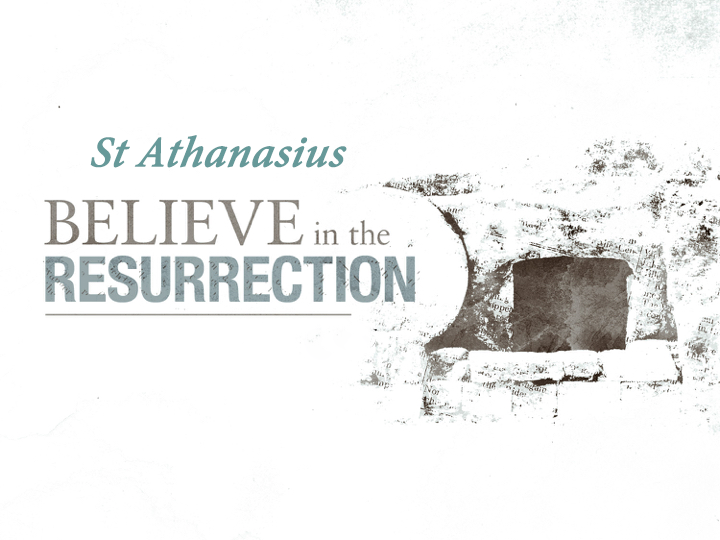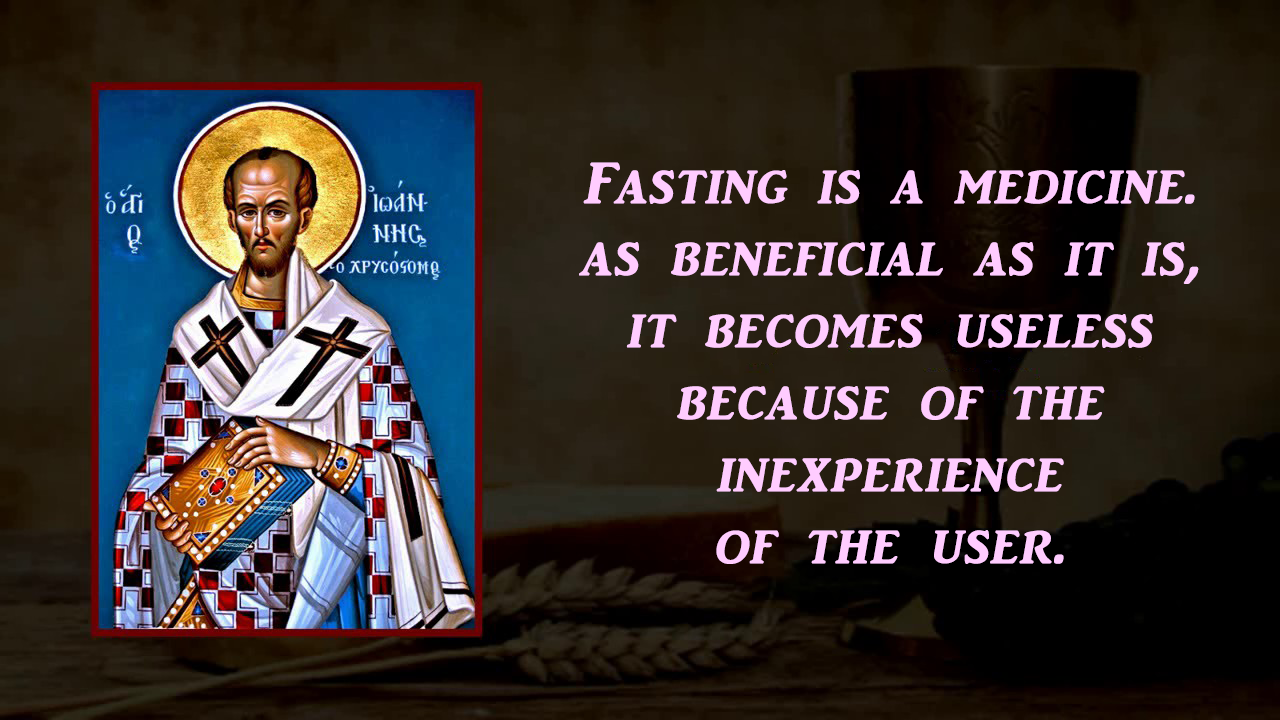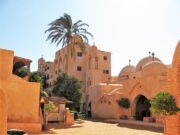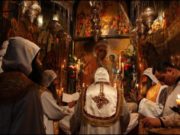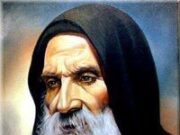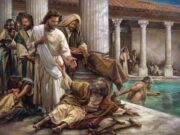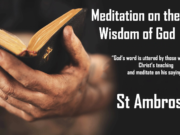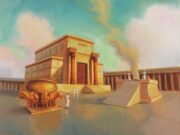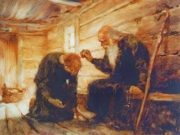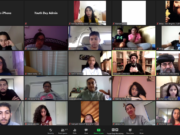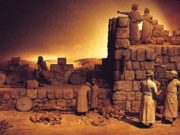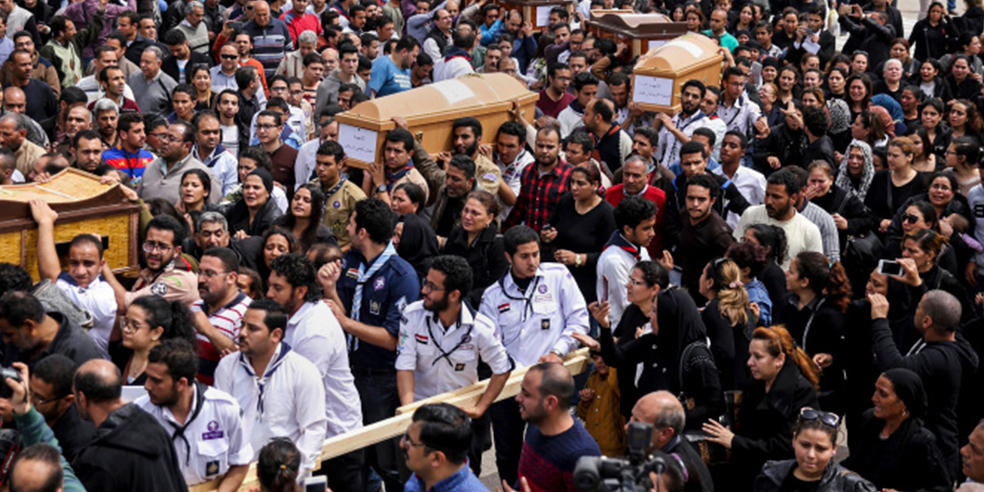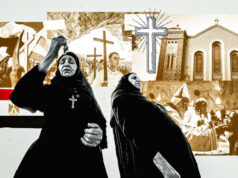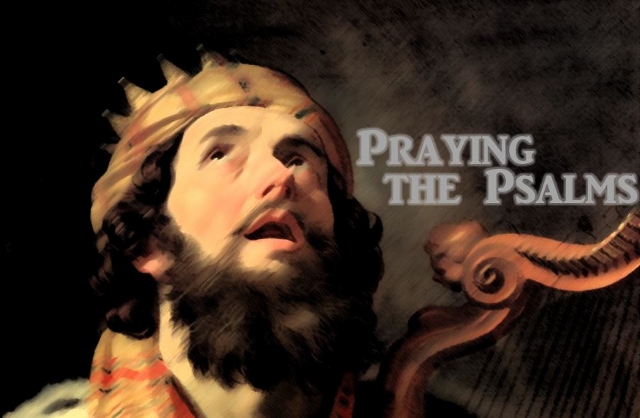
Why did the church choose the Psalms of David the Prophet and organise them into an Agbia? I do not want to answer this question with my own words but I want you to hear what St John Chrysostom says, “We read the Books of the Old Testament once a year with an effort; we read the Holy Gospels and the Epistles once or twice a week at church. However, the Holy Spirit prepared the Agbia on the Psalms of David to encourage prayer in the morning and night. These Psalms are read at the beginning of masses, in spiritual meetings and funerals. The church even encourages his members to memorise these psalms. In all occasions, David’s Psalms are available.
The psalms are like angelic praises prepared by God for His servants, thus the earth becomes heaven and humans become angels. David invites sinners to repentance by saying: “Confess to the Lord for He is righteous.” He encourages people to give thanks by saying: “How can I reward the Lord for all His benefits?” He calls people to confession by saying, “Have mercy on me Oh Lord, because of Your constant love.”
He strengthens those called for priesthood by saying: “Do not cast me away from Your face.” He comforts those who are afraid by saying; “Save me Oh God from my enemies.” He encourages the patient by saying: “I waited for the Lord and He listened to my request.” The Psalms are like a great violin with praises and prayers held in its strings.
The holy church uses the Psalms as a prayer material for the following reasons: David had various experiences throughout his life as he was a shepherd, a great prophet and a king. He was a saint and also a man who fell into great sin. Consequently, the Psalms cover a multitude of experiences that will definitely meet our needs.
David wrote the psalms from a heart that was purified by repentance. He struggled greatly for his spiritual life. “In the day of sorrow, I wore sackcloth and weakened my body with fasting…In the middle of the night I woke up to give thanks for Your righteous judgements…Seven times a day I praise you for Your just judgement…I ate ashes as bread and mixed my drink with my tears.” Despite David’s strong spiritual life, he fell into sin. So do not be overconfident my brother for “If the righteous will scarcely saved, where will I the sinner appear.”
Although David expressed his thoughts into his psalms, they are actually the Words of God, guided by the Holy Spirit. Therefore, when you pray each Psalm, you are talking to God with His words. When a lawyer is defending a convict, he must address certain parts of the Law to gain credibility. Similarly, when you pray, address the psalms and you will gain mercy and Love from God.
Our personal prayers are characterised by many requests. However, the psalms teach us to praise our Creator. Praise is the language of heavenly hosts. Above all, the Psalms are a great material for meditation for it fills the soul with many beautiful thoughts. The psalms are drenched in the Spirit of God. The Psalms are powerful. For this reason, St Isaac says: “May you have an infinite love for the Psalms for they are the food of the spirit.” This does not mean that the prayers of the Psalms are enough. You should also pray private prayers to express your feelings toward God and to ask Him about your needs. The saintly fathers considered the prayer of the Psalms as an introduction to the prayer of the heart.
How do we pray the Psalms?
Present your prayers in awe and reverence. Raise your hands to heaven in humility and bow humbly. If you are careful in this, St Isaac says: “The Grace of God will visit you, for humility in prayer is very beautiful in the eyes of God.” Understand the Psalms and say the words slowly.
The quality of your prayer matters more than the quantity. St Isaac says, “If you want to enjoy reading the Psalms and tasting the Holy Spirit, do not be bothered about the number of Psalms you pray. It is enough that your mind understands the meanings of the prayer so that you may praise the Lord.”
After every Psalm, make a metania and ask the Lord one request. If there is a certain habit or sin that you are suffering from, present this weakness before the Lord in every metania you perform. You can also pray for people in this way.
John Cassain learnt prayer from the monks of the desert. He says, “I saw them in their prayer. After they finish a Psalm, they do not hurry to bow down as an obligation to finish, but I saw them standing for a while and praying a short prayer, then bowing down in awe, with their faces on the ground and then standing again with all thoughts centred in prayer.”
The Kiryelyson (Lord have mercy) that we say during our prayers of the Psalms should be repeated slowly. Every time you say Kiryelyson, imagine the whip that scourged our Lord Jesus. Say within your heart “You did this for me My Lord?” Let the Lord’s sufferings encourage you to plead for mercy.


